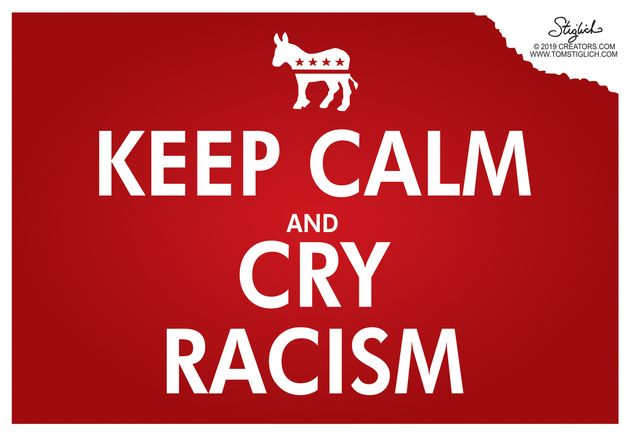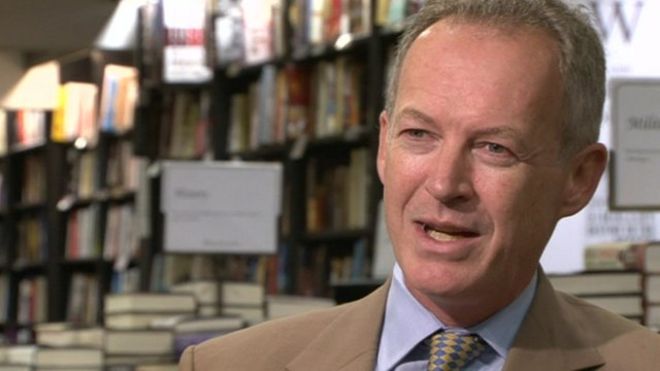By Conrad Black
https://amgreatness.com/2019/08/22/masters-of-unreality/
August 22, 2019

The latest ploy of the anti-Trump media phalanx and their weekly echo chamber of assorted Democratic candidates and legislators, is to try to move the voter-approval needle by insisting an economic recession is about to occur. The problem is, it isn’t.
As weeks pass without a recession or even increasing objective statistical hints of a recession, the continued trumpeting of a recession becomes self-stifling. Not even the economically illiterate mouthpieces of CNN and MSNBC can keep a straight face for long predicting recession when there are no signs it is happening.
It is possible to convince those who want to be convinced that something happening completely in the dark, such as trade negotiations with China, is going badly. (They aren’t.) But is impossible to maintain a levitation of economic alarm when confidence remains high, employers are hiring rather than laying off workers, and economic growth, unemployment, and inflation numbers remain positive.
Understandably, it has been difficult for both sides on the political see-saw as we approach the 2020 election year. President Trump’s enemies, clinging as they have been since the beginning to buoyant flotsam, are like people who have been cast into the sea and can’t swim.
A Blizzard of Subpoenas—and a Looming I.G. Report
The idea of a Trump presidency was so unthinkable there could not be a honeymoon because it could not be real; it could not have been a legitimate election. For more than two years we were waiting for the confirmation that Trump had worked with the Russian government to rig the election.
We now know that from the start the investigators knew that there had been no such collusion and almost two whole years were spent trying to provoke Trump into counter-attacking Special Counsel Robert Mueller’s operation so he could be accused of obstructing justice. Since the president cooperated with the inquiry even as he rightly denounced it as a hoax and a fraud, the best that could be done was an invitation to the House of Representatives to continue investigations so Democrats might keep the impeachment cloud over the president’s head.
Doubtless when legislators return from their summer recess, like two spavined old fire-horses, judiciary and intelligence committee chairmen Jerry Nadler (D-N.Y.) and Adam Schiff (D-Calif.) will storm out of the gate again, issuing subpoenas which will be ignored by the administration, and relying on the same desperately inadequate choir of nasty media sorcerers (down to and including Watergate catacomb mythmakers Carl Bernstein and John Dean), to stoke it up one more time.
It won’t fly. No one believes any of it. Justice Department Inspector General Michael Horowitz will soon produce his report on many aspects of the spurious Trump-Russia investigation, and Senator Linsdsey Graham (R-S.C.) and his judiciary committee will take it from there, shouldering Nadler and Schiff out of the frame.
Inexorably, as special prosecutor John Durham’s indictments come down, the Democrats’ “insurance policy” against Trump (the Russian collusion canard as described by former FBI senior agent Peter Strzok) will become the Democrats’ suicide weapon.
“Concentration Camps” and Other Illusions
Russia was hastily followed by racism, topped out with attempts to hold Trump in some way responsible for the tragic shootings in El Paso and Dayton. Since Trump isn’t a racist, and neither of the two shooters professed any Trump role in forming their psychopathic opinions, that wheeze has died in the summer heat. It is to be hoped that it doesn’t take down prudent bipartisan reforms of the gun regime with it.
The sudden and mysterious silence that has enshrouded the southern border, including the wailings of Representative Elijah Cummings (D-Md.), is the surest indicator that the fence is being built, Mexico is cooperating (as it receives more manufacturing investment from companies fleeing China over tariffs), and the detention and adjudication system with hundreds of new judges, is working. The number of apprehensions of those attempting to enter illegally is declining and it is becoming very difficult to represent crowded but adequately sanitary and well-stocked detention centers as the replications of Nazi death camps that House Speaker Nancy Pelosi (D-Calif.) and others were conjuring.
Understanding the Trump-Era Economy
Now we are on to a recession. This claim contains no more substance than the chimeras that preceded it.
The straws in the wind that have been cited as the green shoots of economic calamity are far from dispositive, and carry much less weight than continuing solid performances in economic growth, inflation, absolute and per capita GDP growth, manufacturing jobs growth, shrinkage of minority unemployment, and purchasing power for working and lower middle class families. All of these numbers are coming in supportively for the administration.
The fact that the election approaches and the importance of the economy in electoral results is proverbial, and the serial evaporation of the false issues that have been pinned on Trump in his inexorable elephantine march through his first term, now combine to attempt the incitement of hysteria on this subject.
It is true that the deficit tops $1 trillion and that is not sustainable indefinitely, but that is 35 percent less than the Obama average (admittedly coming after a debacle bequeathed by George W. Bush); and the GDP is about 25 percent above the latter Obama years. So despite a very large tax reduction and a strong defense build-up, the deficit as a percentage of GDP has shrunk in about five years from 8.5 percent to less than 5 percent, unacceptable, but progress.
The most important single measurement, especially for insertion into political predictions, is GDP per capita growth, which declined dangerously from 4.5 percent in the Reagan years to 3.9 percent in the Clinton terms, to 2 percent under George W. Bush to 1 percent with Obama. This trend had to be reversed to prevent extreme economic and political stress.
Economics, essentially, is half psychology and half third-grade arithmetic. Trump has won the arithmetic and there are no serious signs of incipient recession: neither rising interest rates presaging inflation, which could require recessive measures to cool, nor serious slackening of demand.
Under the circumstances, it will be hard for Democratic officials and media fear-mongering to win the psychological battle over the direct personal experience and observations of the voters.
Dangers Abroad, Increasing Strength at Home
The only signs of economic weakness are from other important countries. The European Union appears to be about to suffer the grievous self-inflicted wound of failing to reach a reasonable compromise with the UK, and the loss of its second-largest national economy and most prestigious member. This would be a benefit to the United States as a free trade agreement with the world’s fifth-largest economy would be eminently negotiable.
China, despite its huffing and puffing and the solicitude for its “face” it has stirred up in the weak-kneed precincts of the over-populated anti-Trump world, is sputtering and losing jobs to Vietnam, India, and Mexico. Those who have been so prostrated in their hostility to the president that they have subscribed to Chinese leader Xi Jinping’s “Belt and Road” hegemonic plan will suffer the disconcertion of seeing China adopt a sharp course correction.
The comparative weakness of China’s rivals will assist the prolongation of the American boom, which only seems so protracted because there never really was a full recovery under Obama, little more than stabilization with a 125 percent increase in accumulated national debt in eight years. The workforce shrank, welfare dependency rose, and a flat-lined “new normal” that the country could not live with was proclaimed.
The Democrats and their media are trying to delay the sober and balanced assessment of the merits of the candidates coming up to the 2020 election. To repurpose a beloved Democratic expression, the inconvenient truth is that Trump has been a good president who has kept his promises.


